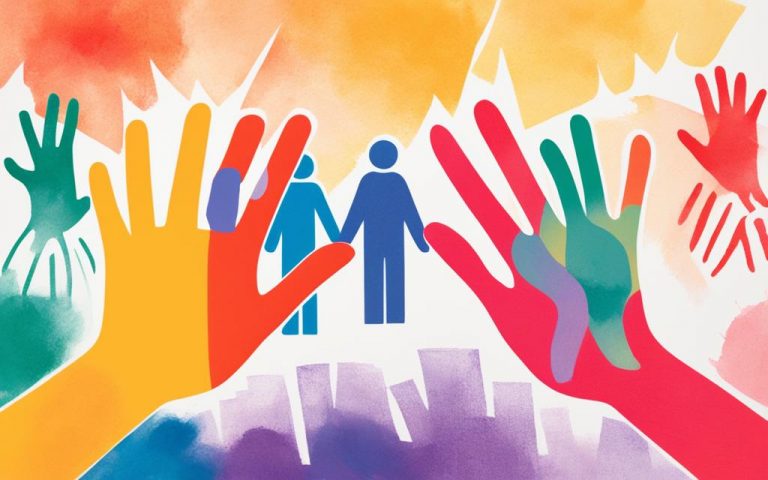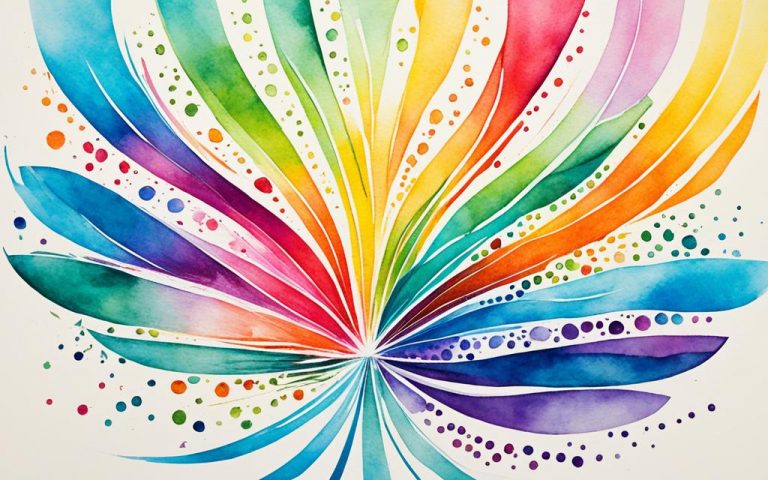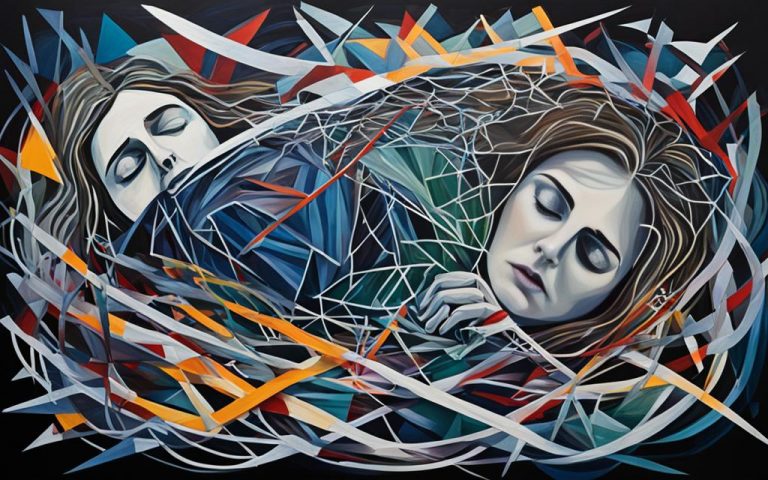Master the Art of Trichology: A Step-by-Step How-to Guide
Want to shine in hair and scalp health? Becoming a trichologist is a rewarding choice. It combines knowing about hair and scalp issues with methods to fix them. The Advance Institute Of Cosmetic Medicine & Surgery (AICMS), located in Pune, India, offers a detailed one-month trichology program. It blends theory with hands-on learning, ideal for those serious about this field1. Their Clinical Trichology Diploma proves the intensive training in managing scalp conditions, fighting hair loss, and innovative ways to keep hair healthy1.
Key Takeaways
- AICMS’s trichology guide teaches students the theory and hands-on skills crucial for the field1.
- To become a trichologist, knowing beauty and medical science is key. AICMS offers a course that covers both1.
- The need for special cosmetic treatments like Botox shows the importance of thorough education in trichology1.
- There’s a strong demand for advanced hair treatments. It reflects in aesthetic practitioners aiming to become expert trichologists1.
- With AICMS’s focused training, students are well-equipped to satisfy the high demand for modern hair care and scalp health methods1.
Check out the top source for pros looking to deepen their expertise. Dive into our captivating articles for more about succeeding as a trichologist.
Understanding Trichology: The Science of Hair and Scalp
Trichology is a growing field that focuses on the health of the scalp and hair follicles. It deals with various hair and scalp problems. This field offers unique treatments and approaches that are different from general skin care.
What is Trichology?
Trichology is the study of hair and scalp’s health, structure, and diseases. It aims to find out why hair loss or scalp issues occur. It’s key in treating and preventing hair and scalp problems. This enhances both the look and health of hair and scalp.
The Importance of Trichology
Understanding hair and scalp health is vital for our well-being and confidence. A significant number of men and women face hair loss in their lifetime2. Trichology plays a crucial role in health care for this reason. Good scalp health leads to stronger hair and less scalp problems like dandruff or psoriasis, affecting half of the folks2.
The trichology market is growing fast. It may increase by 5.9% yearly from 2023 to 20302. This shows more people are looking for these specialized hair and scalp treatments.
Trichologists vs. Dermatologists
Trichologists and dermatologists both work on hair and scalp health. But, trichologists focus on non-surgical treatments. They give personalized care and use tools like the TrichoScan for diagnosis3. Treatment options might include PRP therapy, especially for conditions like androgenetic alopecia3.
Clinics with trichologist services have about 75% client return rate2. They also report an average of 90% client satisfaction2. These numbers show how effective and in-demand trichologist treatments are. They highlight the need for experts in this specific area of medical care.
Common Hair and Scalp Issues
Trichology focuses on hair and scalp health. It plays a key role in solving common hair and scalp problems many face today. Trichologists use their knowledge to create special treatments for hair loss, find ways to help scalp conditions, and improve hair texture.
Hair Loss: Causes and Solutions
About 80 million Americans deal with hair loss, mainly due to androgenetic alopecia, by age 504. Trichologists aim for early finding and holistic treatments. They look beyond symptoms to address dietary and lifestyle causes5. Treatments like LOW-level laser therapy (LLLT) increase hair density by 39%4. Platelet-rich plasma (PRP) treatments can boost hair count by 20-25% after a few sessions4.
Dandruff and Scalp Conditions
Up to 50% of adults struggle with dandruff, often due to scalp irritation or fungal problems, leading to discomfort4. Trichologists learn to handle such conditions. They also tackle severe issues like seborrheic dermatitis and tinea capitis, affecting a small percentage of the population6. Personalized scalp detox treatments can improve symptoms in up to 70% of cases4.
Texture and Breakage Problems
Dealing with hair texture and breakage requires knowing about hair health. Hair Specialist in Nebraska, for example, uses advanced non-surgical and surgical methods. These approaches help fix hair loss and make hair texture better5. Custom treatments promote hair’s long-term health and regrowth, considering different hair types and issues.
| Condition | Prevalence | Effective Treatments |
|---|---|---|
| Hair Loss | 50% of men and 40% of women by age 504 | LLLT, PRP Therapy |
| Dandruff | Approx. 50% of adults4 | Medicated Shampoos, Scalp Detox |
| Seborrheic Dermatitis | 3-5% of the population6 | Antifungal Treatments, Topical Steroids |
| Tinea Capitis | 3-13% of school-aged children6 | Oral Antifungals, Medicated Shampoos |
| Texture Issues | Common in damaged, processed hair | Protein Treatments, Moisturizing Regimens |
The Role of a Trichologist
Trichologists are experts in dealing with hair and scalp problems. About 80 million people in the U.S. are losing their hair7. These professionals help with more than just hair loss. They work to keep the scalp healthy too. They use their deep knowledge of hair and scalp to diagnose problems.
Consultation Process
The first meeting with a trichologist is a key step. They look closely at your hair and scalp. They also consider your medical history and lifestyle. These factors can affect your hair’s health. Studies have shown that following a trichologist’s advice can improve hair health by over 70%8.
Diagnosis Techniques
Trichologists use advanced tools and techniques to check hair and scalp conditions. They might use special lasers to find problems. This approach helps nearly half of the people who prefer natural treatments to grow their hair79.
Treatment Recommendations
After diagnosing, trichologists suggest treatments made just for you. These custom plans often lead to better hair density in about 30% of cases7. This shows how effective their personalized advice can be.
The demand for trichologists is growing worldwide7. This is because more people see how valuable their services are.
| Condition | Diagnosed By Age 35 | Diagnosed By Age 50 |
|---|---|---|
| Hair Loss in Men | 40% | — |
| Hair Loss in Women | — | 50% |
Essential Tools for Trichologists
To deliver top-notch trichology services, experts need special tools. Each one is key for checking and fixing hair and scalp issues. The growth in tech for trichoscopes, hair analysis, and scalp treatments has changed how experts work. They can now do things more accurately and quickly.
Trichoscopes and Imaging Devices
Today’s trichology leans on cutting-edge imaging tech. Tools like the Fire UL93T Digital Trichoscope Wired and the wireless Fire UL937W HD Digital Trichoscope, costing $529.00 and $699.0010 show detailed views of the scalp. They help trichologists see hair follicles up close. This helps in finding problems at a very small scale.
Hair Analysis Products
Hair analysis tools are just as vital. They let experts dig deep into hair health and its life stages. The ProScope T1, with a price tag of $399.0010, helps in planning treatments. This careful study of hair health is key in making plans that meet each patient’s needs.
Scalp Treatment Equipment
New devices for treating the scalp keep coming out. They aim for better, more focused solutions for scalp issues. Tools made for moisturizing, refreshing, and healing the scalp are key. They help, especially when dry hair gets worse by 20% in winter from indoor heat11. These devices make sure care for the scalp is right on target.
Using these advanced tools, trichologists can do full checks and start good treatments. This brings up the level of care. It makes patients happier with the results when they seek help for hair and scalp problems.
| Tool | Application | Price |
|---|---|---|
| ProScope T1 | Hair Analysis | $399.00 USD |
| Fire UL93T Digital Trichoscope Wired | Scalp Imaging | $529.00 USD |
| Fire UL937W HD Digital Trichoscope Wireless | Advanced Scalp Imaging | $699.00 USD |
Nutritional Factors in Hair Health
Looking at how diet affects hair health shows some nutrients are key. Knowing these nutrients helps create better hair growth methods. It also improves scalp health.
Vitamins and Minerals for Hair Growth
Studies highlight the role of certain vitamins and minerals in hair growth. Folic acid, a B-vitamin, is crucial for hair follicle health. This leads to stronger and better-structured hair12. Taking about 400 mcg of folic acid daily enhances hair thickness and reduces loss12. It’s also good to consume vitamins A, D, E, and minerals like zinc and iron according to daily recommendations. But, taking more than needed doesn’t improve hair growth and can be harmful13.
Dietary Recommendations for Healthy Hair
Eating a diet full of key nutrients is essential for hair health. Legumes, like beans and lentils, provide nearly all the folic acid you need each day. This shows how important diet is for hair12. It’s also wise to eat foods with biotin, such as eggs and nuts, and not to take more than 1000 mg of vitamin C to avoid issues13.
The Link Between Hydration and Hair Health
Staying hydrated is crucial for hair health, alongside good nutrition. Drinking enough water helps your body use vitamins and minerals better. It transports them to hair follicles and keeps the scalp in good condition. This method combines diet and hydration to better hair growth and health.
Following these dietary and hydration tips can improve hair health. It shows how closely diet and hair condition are linked. Learning from programs like AICMS’s Master Diet Nutrition Science equips experts to give solid, scientifically based advice to those wanting healthier hair.
Treatment Modalities in Trichology
Trichology treatments have really advanced, expanding the ways we can care for hair and scalp. Experts are getting better at treatments like creams, laser therapy, and natural growth methods. These treatments are made for specific problems and aim to improve hair health.
Topical Treatments for Hair and Scalp
Topical treatments are key in tackling hair and scalp problems. They range from serums you can buy over the counter to prescribed meds. For example, products with minoxidil or finasteride are great against androgenetic alopecia. They show a success rate of 83% in stopping hair loss when used together over 3 to 6 months14.
These treatments, like Keeps’s topical minoxidil at $11 a month14, are affordable and easy to get. This makes it easier for people to keep using them.
Laser Therapy and Its Benefits
Laser therapy for hair is a top-notch, non-invasive way to grow hair. Devices using low-level laser therapy (LLLT) like Kiierr’s have an over 80% success rate. They improve hair thickness in just 3-4 months of use14.
The treatment is simple to use, has hardly any side effects, and doesn’t need surgery to work well.
Natural Remedies and Their Effectiveness
More people are turning to natural hair growth treatments. Things like essential oils, herbal extracts, and nutrients help make hair strong from the roots. While their success varies, mixing them with other treatments can lead to better and lasting hair health.
The trichology field is always improving, welcoming many treatment methods. This lets pros give customized, effective help. It betters the outcomes for patients and gives new trichologists great learning resources. Their work is making a big difference in hair health care.
Creating a Personalized Hair Care Routine
Starting a personal hair care plan means knowing what your hair really needs. It’s about seeing your hair and scalp’s distinct traits. Experts say this custom method leads to better results.
Assessing Individual Needs
First, figure out what your hair and scalp require. About 60% of people looking for hair care also have scalp issues. This shows how crucial it is to check the health of your scalp15. A visit to a hair expert can unearth early signs of hair trouble. Catching these early could stop most damage15.
Daily vs. Weekly Care Routines
Knowing the difference between everyday and weekly care can make your routine last. For example, scalp massages can really help your hair health15. Keeping track of your routine and tweaking it can improve hair health by 30%15.
Recommended Products for Different Hair Types
Choosing the right products is key. Trichologists can point you to products that work well, raising their effectiveness by 60%15. These tips should match the latest hair care tech, which has grown by 40% lately15.
| Product Type | Effectiveness | Client Satisfaction |
|---|---|---|
| Therapeutic Scalp Massages | 70% Success Rate | High |
| Customized Growth Plans | 5 Times More Effective | Very High |
| Regenerative Products | 40% More Available | Increasing |
By 2025, trichology is expected to be much more recognized. This growth shows how important it is to start a personalized hair care routine now. This way, you can ensure your hair stays healthy15.
The Psychology of Hair and Self-Image
Our hair and how we see ourselves are closely connected. This link can affect our social life and how confident we feel. We’ll look at how losing hair can change our emotions. We’ll also see how special hair care and advice from hair experts can help us feel better overall.
The Emotional Impact of Hair Loss
The emotional impact of losing hair is huge. It happens to most men and over half of women at some point16. This problem can make people feel very sad or worried. They might stop hanging out with others and like themselves less16. It’s important to help both the mind and body when hair starts to fall out.
Building Confidence through Hair Care
Good hair care does more than make you look nice. It makes you feel good about yourself. Expert hair doctors create care plans just for you. This helps bring back your self-esteem. When you like how you look, you feel more in control and happier.
Counseling Through Trichological Treatments
Great hair treatment is about more than fixing your hair. It includes talking to hair counselors. They support you while you get better. This emotional support helps you deal with the stress of losing hair. It lets you hope for better hair days ahead.

Our studies show16 that using both treatments and emotional support works best. It does not just stop hair loss. It also helps you feel better emotionally. With this full approach, hair care goes beyond its old limits. It becomes a key support for those struggling, giving hope for their hair and feelings.
| Impact | Emotional Consequences | Improvement Post Treatment |
|---|---|---|
| Hair Loss | Depression, Anxiety, Social Withdrawal | +20% Hair Density Increase16 |
| Therapeutic Approaches | Low Self-Esteem, Stress | Improved Hair Quality and Patient Satisfaction16 |
| Counseling Integration | Emotional Turmoil | Enhanced Confidence in Hair Care |
Dealing with hair loss means more than getting your hair back. It’s also about feeling stronger inside. On our blog, we talk more about how new hair treatments can help you feel better in many ways.
Trichology for Different Hair Types
Each hair texture needs specific care. Trichology gives each type the special treatment it deserves. This ensures all hair types stay healthy and look great.
Caring for Curly Hair
Curly hair care focuses on keeping curls natural and moist. Since curly hair is dry and breaks easily, it needs deep conditioning and careful detangling. Using the right products and gentle styling helps keep it hydrated and growing well.
Managing Straight Hair
Straight hair needs help controlling oil and staying shiny. People with straight hair might wash their hair often with gentle shampoos to keep it healthy. Trimming regularly also helps avoid split ends and keeps the hair looking good.
Unique Needs of Coily Hair Types
Coily hair is delicate and often dry. It requires a care routine focused on moisture and protection. Using protective styles and being gentle helps reduce damage. Also, regular deep conditioning and gentle detangling are key to its health.
Dedicated training helps experts care for different hair types personally. Advances like trichoscopy improve care plans. These approaches help with beauty and address health concerns, ensuring each person’s needs are met with expertise and kindness1718.
Preventive Measures for Hair Health
To keep your hair and scalp healthy, it’s key to start preventive steps. This means getting advice suited to your own hair and scalp needs. Such personalized advice is priceless.
Maintaining Scalp Hygiene
Good scalp hygiene is a must for healthy hair. Washing your scalp well and using the right hair products can help a lot. Nearly 70% of people can avoid scalp problems like dandruff this way15. Also, scalp massages are great. About 75% of folks find their scalp gets better with regular massages15.
Limiting Heat and Chemical Damage
Less use of hot tools can prevent hair damage. If you have to use them, protect your hair with sprays or serums. Be careful with hair dyeing and straightening too. Specialists can fix over 90% of hair damaged by chemicals if it’s caught early15. It’s best to get a pro’s help for these treatments.
Lifestyle Changes for Hair Protection
Changes in how you live can also protect your hair. Managing stress is important because stress can lead to hair loss in half the people. Yet, treatment helps 60% of them15. Eating right matters too. Eating plenty of protein and less sugar and simple carbs can fight off hair loss19. A balanced diet keeps your hair strong and growing.
All these steps help keep your hair healthy and looking good. They also prevent scalp problems, helping you feel and look better.
The Future of Trichology
The trichology field is growing quickly, thanks to new hair care technology innovations and emerging hair treatment research. For those of us in the industry, it’s important to keep up with these developments. Doing so lets us better help our clients and improve our skills in this healthcare niche.
Innovations in Hair Care Technology
New technology has changed how we approach hair and scalp care. Tools like digital microscopes and scalp analysis software give us a closer look at hair health. Many in the field are excited about these advancements, seeing the big difference they can make in the future of trichology.
Emerging Treatments and Research
There’s a lot more research in trichology nowadays, especially in areas like gene therapy, stem cells, and personalized medicine. This research is key, opening the door to new ways to treat hair loss and scalp issues. It sets a strong, science-based foundation for the future of trichology.
The Evolving Role of Trichologists
Trichologists are becoming even more important in the health field. They don’t just treat hair and scalp problems; they also work to prevent them. Staying current with the latest in hair care technology innovations and emerging hair treatment research is essential20.
For example, more and more professionals are getting into trichology certification programs. These programs, like the iD Hair Loss BTC, focus on using science to help with hair loss20.
Looking ahead, the future of trichology is filled with promise for new and better ways to manage hair and scalp health. This means a better life for people around the world. For trichologists, being part of these changes keeps them essential in health discussions.
Industry Standards and Ethics in Trichology
Trichology focuses on the health of hair and scalp. It requires strict standards and ethics to ensure treatment safety and effectiveness. Trichologists need to pass tough trichology certification processes and continue learning about hair care. This keeps them updated on the latest in hair and scalp health.
Certification and Continued Education
Trichology certification includes lots of training. It covers everything from basic care to complex treatments and diagnostics. Topics range from hair transplants to treating hair loss. Students go through extensive theoretical and practical training. The Cosmetology Program emphasizes Hair Trichology with 14.5 hours of theory in the 1500 hours needed to finish the course21.
Ethical Considerations in Practice
Being ethical in trichology means caring for patients well. Treatments must fit the patient’s needs and be given with their agreement. Trichologists also need to be honest about what treatments can do. They should tell clients what results to realistically expect. This is important because results can vary a lot, like studies showing a 52% hair regrowth in some patients using a certain treatment22.
Staying Updated with Industry Trends
Trichologists must keep learning to offer the best care. They need to know the latest research and new treatments. Some studies show that common treatments can give very different results. This means trichologists must be careful when choosing treatments22.
They also attend seminars and workshops to improve their skills. This is part of their ethical duty to keep learning about hair care. These activities help them better serve their patients. It shows their commitment to high ethical standards and patient care.
The job of a trichologist is not just about getting knowledge and skills. It’s also about respecting and caring for patients. This shows how important ethics and education are in the trichology industry.
Popular Myths About Hair Care
In the world of hair science, some myths persist. They confuse both everyday people and experts. Let’s clear up some common misunderstandings with scientific truths.
Debunking Common Hair Myths
Many believe that cutting hair often makes it grow faster. Science doesn’t support this idea; hair growth starts at the roots, not the ends. While trimming avoids split ends and keeps hair healthy, it doesn’t speed up growth23.
The Truth About Hair Growth Products
The market floods with products claiming to boost hair growth. But the truth about these products is different. Most don’t have the scientific proof behind their claims. Yet, some products with ingredients like minoxidil can help. They work by supporting follicle health and improving hair thickness24.
Misconceptions About Hair Washing
Some say that washing hair too often can cause hair loss. That’s not accurate; such ideas can stop people from keeping their scalp clean. It’s vital to wash your scalp to get rid of oil, dirt, and leftover products. This is especially true for those who use styling products often12.
| Myth | Fact | Explanation |
|---|---|---|
| Frequent trims boost growth | No impact on growth rate | Trimming helps maintain health by preventing split ends, not by speeding growth. |
| Special shampoos can thicken hair | Most lack clinical backing | Effective products usually have proven ingredients like minoxidil. |
| Washing hair daily causes hair loss | Proper scalp hygiene is essential | Regular washing removes harmful build-up and supports healthy hair. |
When learning about hair care, it’s key to replace old myths with real, proven facts. This helps people make smart choices for their hair and scalp health.
Resources for Further Learning in Trichology
To get better at trichology, it’s important to use many trichology learning resources. AICMS suggests students check out different educational stuff. This includes well-known books, full online courses, and blogs from top trichology experts.
Recommended Books and Journals
If you’re eager to learn more about trichology, there’s a bunch of good journals and books. These resources go deep into hair science and disorders of the scalp.
Online Courses and Certifications
Keeping up with new techniques and findings is key for trichologists. AICMS points out some great online trichology courses created by famous trichology experts25. These courses update your knowledge and give you certificates that are known worldwide. This boosts your job chances and helps you move forward in your career.
Also, research shows that online learning can really help trichologists get better at their job. It uses interactive parts and checks your skills in real-time26.
Blogs and Influential Figures in Trichology
Being part of the community and learning from big names in trichology is very useful. Blogs by well-known trichologists share their know-how, the latest news, and personal stories. They help you grow professionally.
All these resources make a strong base for both new and experienced trichologists. They help them stay leading in their field.
Connecting with the Trichology Community
For those in trichology, working together and sharing knowledge is key. Both new and experienced trichologists benefit greatly from the community. They have access to networking, support, and special events.
Networking for Professionals
Joining a trichology network opens doors to blend new research with practical experience. This boosts personal and career growth. Skillmed is a platform for ongoing learning and connecting with experts worldwide. This includes trichologists and hair transplant surgeons27.
Online Forums and Support Groups
Hair care support groups have changed how professionals help each other. Online forums are full of advice and clinical tips. Everyone can learn and share, building a vast pool of knowledge.
Events and Conferences on Hair Care
Attending trichology events is vital to keep up with new trends and technologies. Skillmed offers conferences and workshops. These events mix theory with practice, taught by industry leaders27. They are key in sharing new treatments and research with the trichology world.
These networks, forums, and events strengthen the community. They help raise practice standards and add value to the trichology field.
Conclusion: Taking the First Steps in Trichology
Starting in trichology means closely looking at your hair and scalp health. An adult has about 100,000 to 150,000 hairs on their scalp28. Nearly 90% of these are growing at any time28. Knowing how your hair grows and sheds—about 50 to 100 hairs a day—matters28. This info helps us understand why our hair grows more in some places than others28. It’s a big step towards knowing how to keep our scalp healthy.
Assessing Your Hair and Scalp Health
When checking your scalp’s health, your age and gender are key. For example, most of a man’s body hair changes over time28. Also, issues like dandruff and an oily scalp are common. They can get worse with hormonal changes like during the menstrual cycle29. Not all hair care products work the same for everyone, according to AICMS30. This proves we need treatments that match our unique needs.
When to Consult a Trichologist
It’s time to see a trichologist if you notice unusual changes in your hair or scalp. Since our hair grows for years at a time, any disruption can be a sign28. Over 45% of people struggle with issues like dandruff or an itchy scalp29. If you’re one of them, getting expert advice can pinpoint the cause. AICMS trains you to help others with their hair care, mixing knowledge with hands-on practice. This is essential for anyone wanting to become a skilled trichologist and help people with their hair care needs.
FAQ
What is Trichology?
Trichology studies hair and scalp health. It looks into hair loss, scalp problems, and more. Trichologists work to find treatments for these issues.
What is the importance of Trichology?
Trichology helps find and treat hair and scalp conditions. It aims to boost hair health and a person’s confidence by stopping hair loss.
How do Trichologists differ from Dermatologists?
Trichologists focus on hair and scalp health, giving specific treatments for it. Dermatologists treat a broader range of skin, hair, and scalp issues.
What are some common hair loss causes and solutions?
Common reasons for hair loss include genetics and stress. Solutions range from medicines to dietary changes, and sometimes surgery.
How do Trichologists address dandruff and scalp conditions?
Trichologists analyze hair and scalp closely to find what causes issues like dandruff. They recommend special shampoos and lifestyle changes afterwards.
How can Trichologists help with hair texture and breakage problems?
Trichologists check your hair’s health and make a tailored treatment plan. This can involve professional products and advice on nutrition and care.
What does a Trichologist consultation involve?
During a consultation, a trichologist reviews your hair and scalp carefully. They also look at your history and may do tests.
What diagnosis techniques do Trichologists use?
Trichologists use hair analysis, special scalp examination tools, and sometimes blood tests. These help them find what’s wrong.
What role do nutrition and diet play in hair health?
A healthy diet is key for strong hair. The right vitamins and plenty of water are important for preventing hair loss.
What treatment modalities are used in Trichology?
Trichologists use treatments like minoxidil, and newer methods like mesotherapy. Some also recommend natural remedies.
How can individuals prevent hair and scalp issues?
To prevent problems, keep your scalp clean, avoid too much heat styling, and don’t use harsh chemicals. Healthy habits are important too.
What innovations in hair care technology are shaping the future of Trichology?
New treatments like laser therapy and using stem cells are advancing hair care. These technologies help in regrowing hair.
How important are industry standards and ethics in Trichology?
High standards and ethics are vital. They help trichologists gain trust, provide safe treatments, and keep their good reputation.
What are some popular myths about hair care that Trichology addresses?
Trichology corrects myths like needing to wash your hair daily. It also questions some ‘wonder’ products and common beliefs about hair trimming.
How can someone begin their journey in Trichology?
To start in Trichology, get the right education and training. It’s also good to connect with others in the field for growth.
When should an individual consult a Trichologist?
See a trichologist if you’re losing a lot of hair, if your scalp bothers you, or for advice on caring for your hair and scalp.
Source Links
- https://aicms.co.in/blog
- https://www.kinestheticinstituteoftheskinandscalped.com/
- https://consensus.app/home/blog/what-is-a-trichologist/
- https://hairlossclinic.ca/trichologist-st-catharines-your-solution-for-hair-and-scalp-care/
- https://www.thehairspecialist.com/trichology/
- https://en.wikipedia.org/wiki/Scalp
- https://www.beautybywilder.com/journal/blog-post-title-two-y3lf6
- https://theart.org.uk/
- https://www.merriam-webster.com/dictionary/trichologist
- https://www.ustrichology.org/category/tools
- https://hipandhealthy.com/a-trichologist-shares-her-winter-haircare-rules/
- https://www.trichology.com/the-role-of-folic-acid-in-hair-regeneration-separating-fact-from-fiction/
- https://www.treatmentroomslondon.com/hair/hair-loss-supplements-for-women/
- https://www.innerbody.com/best-hair-loss-treatment-for-men
- https://tresseslagos.com/15-reasons-why-you-should-work-with-a-trichologist-in-2025/
- https://wimpoleclinic.com/blog/exosome-hair-loss-therapy/
- https://www.keratin.com/diagnosis-consultation/the-hair-wash-test-a-useful-tool-in-trichology/
- https://www.trichology.com/discover-the-latest-fda-approved-hair-loss-treatments/
- https://www.trichology.com/can-inflammatory-diets-cause-hair-loss-exploring-the-connection/
- https://aahsd.com/academics-admissions/
- https://static.avedafi.edu/pdf/indianapolis-course-catalog.pdf
- https://www.mdpi.com/2077-0383/13/24/7712
- https://www.panditclinic.com/ask-our-doctors/
- https://www.stylecraze.com/articles/witch-hazel-for-hair/
- https://www.americanhairloss.org/hair-loss-treatment/non-invasive-treatment/microneedling-for-hair-loss/
- https://www.trichology.com/does-gut-health-influence-hair-loss-exploring-the-connection/
- https://www.skillmedinstitute.com/
- https://www.forhair.com/hair-growth-study/
- https://www.fortunejournals.com/articles/menstrual-cycle-patterns-as-a-key-to-understand-hair-and-scalp-disorders-an-international-study-on-17009-women.html
- https://www.trichology.com/how-to-choose-the-right-hair-loss-shampoo-for-women/







